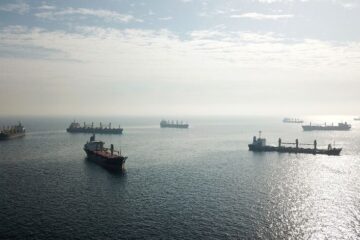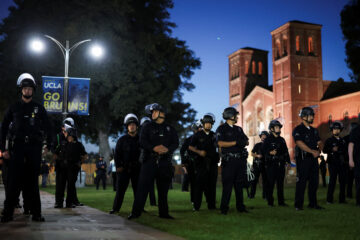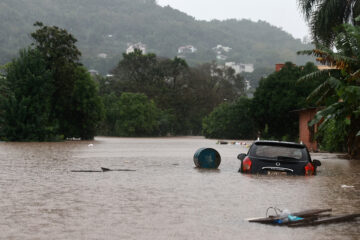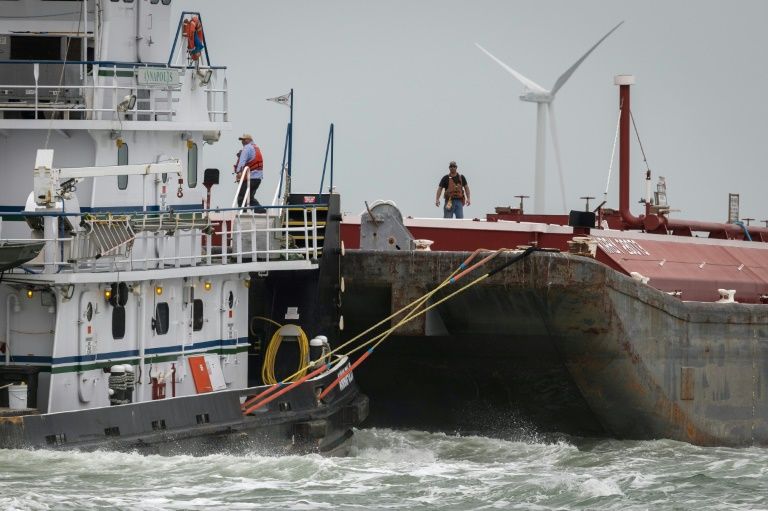Argentina votes on big economic, political change
Argentines voted Sunday in a presidential runoff that could end 12 years of leftist government and see the pro-business opposition seize command of Latin America\’s third-biggest economy.
Polls show that the mayor of Buenos Aires, former Boca Juniors football executive Mauricio Macri, 56, could beat his left-wing rival Daniel Scioli, 58, an ex-power boating champion.
If Macri breaks the grip of Peronism, the broad populist movement that has dominated Argentine politics for a century, he could become Argentina\’s most economically liberal leader since the 1990s.
Queues formed at polling stations which opened at 8:00 am (1100 GMT) under sunny blue skies in the capital Buenos Aires, a key electoral territory. Voting was due to close at 2100 GMT with first results expected in the following hours.
Macri has cast himself as a force for change, as many voters are fed up after 12 years of government by Kirchner and her predecessor and late husband, Nestor Kirchner.
"We deserve to live better than this," Macri said at his closing campaign rally.
Scioli said Macri\’s proposed economic reforms threatened Argentines\’ welfare payments, salaries and industry.
"Macri means the devaluation that destroys salaries. He is the demon of savage capitalism," Scioli said.
The latest opinion poll by consultancy Management and Fit showed Macri with 55.3 percent support and Scioli with 44.7 percent.
Polls in Argentina have proved unreliable in forecasting results in the past however. They also indicated there were millions of undecided voters.
Macri has proposed to lift restrictions on imports and on US dollars — though analysts say he may struggle to push reforms through a hostile Congress.
He surprised pollsters in the first round vote by finishing just three points behind his rival, with 34.1 percent of the vote to Scioli\’s 37 percent. The narrow result forced a run-off vote.
The election has been unlike any other in Argentina\’s history, with the first ever national runoff vote, and the first televised candidates\’ debate.
The increasingly tense campaign has been fought on shifting political ground in the vast South American nation of 42 million people.
If he wins, Macri will be the first leader to be fairly elected who is neither a Peronist nor from the radical liberal movement.
His ascent has raised hopes among financiers, but fears among domestic businesses and poorer Argentines who have benefited from the social and trade policies of the combative outgoing president.
Whichever man wins now will have to tackle soaring inflation, currently estimated at more than 20 percent.
He will also face a dispute with so-called "holdout" creditors who have sued Argentina in the US courts for unpaid debts. Scioli and Kirchner call the hedge funds "vultures."
The Kirchners tried to restructure tens of billions of dollars of debt that Argentina defaulted on in 2001, when it was bailed out by the International Monetary Fund. That was then the biggest sovereign default in history.
They presided over a spectacular economic turnaround that is now flagging. The economy grew at a relatively slow rate of 2.2 percent in the first half of this year.
"Fiscal and monetary policy is too loose, the balance of payments position is unsustainable and the government is locked out of global capital markets," wrote Edward Glossop, an analyst at research group Capital Economics.
"The prospects for reform are higher now than at any point over the past decade."
SOURCE: AFP
[do_widget_area inner_adsbar]










